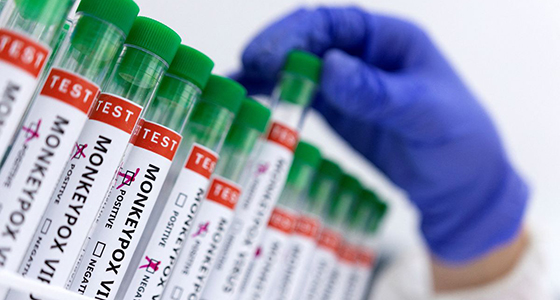Monkeypox is a rare disease that is caused by the monkeypox virus. Monkeypox is most commonly seen in central and west Africa but there has been a recent increase in cases in the UK as well as other parts of the world where it has not been seen before. Symptoms of the monkeypox virus are:
- High temperature
- Headache
- Muscle aches
- Backache
- Swollen glands
- Shivering (chills)
- Exhaustion.

A rash may also appear 1-5 days after the first symptoms occur, this usually begins on the face in 95% of cases. The rash is sometimes confused with chickenpox. It starts as raised spots, which turn into small blisters filled with fluid. These blisters eventually form scabs which later fall off. The main difference between monkeypox and chickenpox is swollen glands. Symptoms usually clear up after a few weeks.
Monkeypox is spread through close physical contact with people who are already infected. It spreads through:
- Touching clothing, bedding or towels used by someone with the monkeypox rash
- Touching monkeypox skin blisters or scabs
- The coughs or sneezes of a person with the monkeypox rash.
It is unlikely that if you have not visited west or central Africa, or been in close contact with someone who recently has travelled to those places, that you will have the monkeypox virus.
If you think you may have the monkeypox virus, you should contact NHS 111. All cases are being followed up by the UK Health Security Agency (UKHSA) who will trace all close contacts and provide advice and treatment as appropriate. You should not go to your local hospital or visit your GP. Please remain at home please and let your tutor know as soon as possible so it can be recorded as an authorised absence.
Monkeypox is a far less transmissible virus than Covid-19 and doesn't mutate in the same way. Vaccination and treatment is available for the monkeypox virus. The effects of the condition are usually mild and most people recover within a few weeks without treatment. Go to the NHS website for more information.
As the infection can spread through close contact, it's important to isolate if you're diagnosed with it.
GOV.UK has further advice for people infected with monkeypox who are isolating at home.
Posted on Friday 7 October 2022